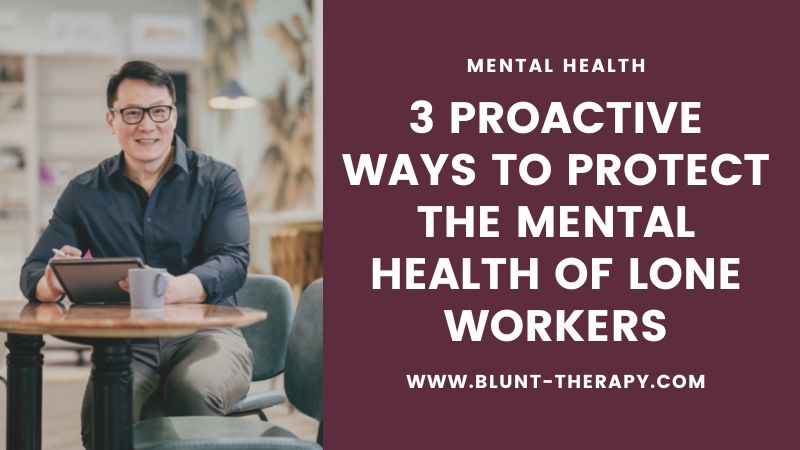Table of Contents
Affiliate link notice: As an affiliate of BetterHelp and other third-party vendors, We will receive compensation if you make a purchase using the links provided on this page. For more information, visit our disclosure page.
Last Updated on November 30, 2023 by Randy Withers, LCMHC
If you’re one of the many who struggle with anxiety, you likely look for ways to reduce your symptoms. But did you know that diet plays a key role in mental health?
Among the various dietary factors we’re learning more about, one stands out: omega-3 fatty acids. Research around it has led to an intriguing question: “Is omega-3 good for anxiety?”
In this article, we’ll take a closer look at how the food we eat can influence our feelings, with a special focus on omega-3s. We’ll discuss what omega-3s are, where you can find them, and explore the possibility of them being a natural way to manage anxiety.
Join us as we explore the role of omega-3s in managing anxiety and other types of mood disorders.

What Are Omega-3s?
Omega-3 fatty acids are nutrients that surround your cells, nourishing and strengthening them. There are three acids that compose them:
- Alpha-Linolenic Acid (ALA)
- Docosahexaenoic Acid (DHA)
- Eicosapentaenoic Acid (ELA)
The acids are essential fatty acids, which means you must consume them. Your body can’t produce them. ALA mostly comes from plant oils, like soybean or canola. DHA and ELA are in seafood like salmon and tuna, which is why many omega-3 supplements are fish oils.
Scientists recommend that healthy adult men get around 1,600 milligrams of ALA daily and healthy adult women take in 1,100 milligrams. There is no standard for DHA or ELA.
There are several studies surrounding Omega-3s’ impact on the body. They are important for brain, eye, heart, respiratory and reproductive health. They also contribute to a healthy endocrine and immune system. They also have mental health benefits.
Is Omega-3 Good for Anxiety?
Anxiety relief is one of the many health benefits of omega-3. Evidence supports that omega-3s can help alleviate anxiety symptoms thanks to their impact on the brain. DHA can significantly impact your neurotransmitters and slow your brain’s ability to process glucose. A 2018 meta-analysis of 19 different studies found that people who took high doses of omega-3s–up to 2,000 milligrams–had reduced anxiety symptoms.
Anxiety can come from your brain not effectively processing and sending messages to your nervous system. Omega-3s improve the processing ability, which can affect your anxiety. It also impacts your memory and ability to learn, which can prevent anxiety-causing situations.
Doctors don’t recommend using omega-3s as a replacement for psychiatric medications, but with proper medical guidance, adding one to your treatment plan could help.
How to Get More Omega-3 in Your Diet
You can get omega-3s through a varied diet that includes varieties of seafood, especially cold-water fatty fish like herring and mackerel. They contain both DHA and ELA. Nuts and seeds like chia seeds and walnuts have ALA. You can also get omega-3s through fortified foods. Some eggs, milk and other dairy products and juices have it added.
Most people get enough omega-3s for physical health in their diet. Being inefficient can cause a swollen, scaly rash.
You can boost your intake with dietary supplements. Krill, cod and algal oil come in capsules you can take in various doses. Taking them can give you a higher daily dose than you’d otherwise have. If you eat some omega-3-rich foods but have anxiety symptoms, a supplement could help. You typically shouldn’t have more than 5,000 milligrams. You can often tell if you took too much by an upset stomach, heartburn, headaches or foul-smelling sweat.
Always double-check that a supplement won’t negatively interact with another medication. One of the major interactions of omega-3 supplements is causing bleeding for people taking blood thinners.
Overall, omega-3s are a relatively safe way to improve your anxiety symptoms.
Other Dietary Strategies
Omega-3s aren’t the only supplement that can help. You can also consider these options.
Curcumin
Research shows that curcumin can reduce symptoms. It’s anti-inflammatory but also provides many brain benefits–including regulating serotonin and dopamine. Those hormones are essential in boosting your mood and can combat anxiety and depression. You can find curcumin in turmeric, curry powder and mango ginger. You can take it as a supplement or add it to curries or teas.
Vitamin D
Around 40% of Americans are vitamin D deficient and low levels can contribute to many mental health conditions, including anxiety. You can boost your vitamin D levels by spending more time in natural light. Many fish, eggs, red meat, fortified milk and cereals also have it.
Vitamin C
Some anxiety patients reported that vitamin C lowers anxiety levels. It’s a powerful antioxidant that can help reduce oxidative stress that contributes to anxious thoughts and feelings. Citrus fruits like oranges, lemons and tomatoes have high levels of the vitamin as do potatoes, broccoli and red and green peppers.
Water
Hydration is essential for life, and water has calming elements. You can get it by drinking non-alcoholic and non-caffeinated beverages. Many foods also have some water, with grapes, watermelon and celery having high water content. When you’re dehydrated, your brain doesn’t work as efficiently, putting you on edge. Having four to six glasses per day can keep you sufficiently hydrated.
Ketosis
There is some evidence that a keto diet can help reduce anxiety symptoms. Free radicals in your body can damage your cells. A high-fat, moderate protein and low carbohydrate diet like the keto diet can improve your ability to use antioxidants. There’s debate about whether keto is healthy long-term, so it may be best as a short-term boost.
Other Techniques for Reducing Anxiety
If you’re hoping to reduce anxiety symptoms, there are non-dietary methods that can help.
Meditation
Meditation is a learned skill that you can use to calm your body and mind. Anxiety can make your mind think of past traumas or worst-case scenarios about the future. Meditation lets you close your eyes, breathe deeply and focus on the present moment. There are many types of mediation, including focusing on a mantra, tuning into your senses and controlling your breathing. Just 10 minutes of meditation per day can reduce intrusive thoughts. There are many free resources available that can help you begin.
Aromatherapy
Aromatherapy uses different scents that can distract and calm your mind. You can use candles or a diffuser to experience their effects. Lavender, rose and eucalyptus can be beneficial for anxiety. Start small to ensure you have no adverse side effects. You can use them in your home or workplace to feel more centered.
Sleep
Not getting enough sleep can lead to increased anxiety symptoms. Healthy adults need between seven and nine hours each night, though most get fewer. Sleep is essential for processing thoughts and memories. It also regulates the stress hormone cortisol. High levels can lead to higher anxiety levels.
Taking Omega-3s for Anxiety
Omega-3s have a host of health benefits, including helping with anxiety. Though it isn’t a substitute for medication, sourcing it through food and supplementation could help you feel calmer. Combined with other foods and coping strategies, you can reduce your symptoms.
Final Thoughts
So, is omega-3 good for anxiety?
Managing anxiety effectively goes beyond prescription medication. Omega-3 fatty acids can be beneficial, offering a natural method to alleviate anxiety symptoms. They play a key role in brain health, yet they should be part of a broader strategy that includes therapy, exercise, and healthy coping skills.
Including omega-3-rich foods or supplements in your diet is beneficial. Additionally, incorporating nutrients like curcumin, vitamins D and C, and staying hydrated are crucial for mental well-being.
Practices like meditation, aromatherapy, and adequate sleep also contribute significantly to anxiety management. Overall, a balanced approach that combines diet, lifestyle habits, and medical guidance is essential for effectively managing anxiety.










